It’s not uncommon for A-League champions to struggle in the year following a season of silverware. It is almost par for the course in the top level of football in Australia.
But because the current champions of Australia have claimed 5 trophies in the past 4 seasons, a poor start to the season is ringing alarm bells where usually it would be seen as the usual next-season-slump.
In fact, it has happened before at Brisbane. Twice.
Before we begin, if you haven’t already, you might like to read my previous posts on the Ange revolution that took Brisbane Roar from also-rans to become the dominant force of Australian football. It is in 3 parts.
All done? Good.
The first “next-season slump” happened after Roar’s first silverware. 2010/11 saw the boys in Orange claim the club’s first trophies in dominant fashion, only losing once in 33 matches. When Brisbane lined up for their first match of the new season, they did so without Matt McKay, Luke De Vere, Milan Susak, Kosta Barbarouses & Jean Carlos Solorzano who, for reasons varying from terrible career advice from a former club captain to a loan expiring, all left the club after their success.
Because of the importance of these players (Barbarouses & Solorzano accounted for 22 of the club’s total of 62 goals) replacements were imperative. An unknown striker, Besart Berisha, was brought in to fill the gap up front, while Matt Jurman and Mohamed Adnan were imported to partner Matt Smith at the back.
These imports (Berisha & Adnan) did the trick. The results kept coming as if last season had never ended. Ange began talk of creating a dynasty of long-lasting success, dreaming out loud about becoming Asian Champions, about maybe facing Barcelona at the World Club Cup. This was before the draw had even been done for the upcoming Asian Champions League which Brisbane had qualified for the first time.
There was one key motivator that kept the engine running and the hunger burning: The Unbeaten Streak. When they beat Perth 4-0 at home on November 26, Brisbane Roar claimed the record for the longest unbeaten streak in Australian football. It was something that the players were aware of, were constantly reminded of, and worked hard to protect and lengthen at all times. It was an important milestone to keep the squad focused at a time where they were vulnerable.
It was at this moment that Brisbane’s “next-season-slump” began. A little later than most others experience, but it did happen. The very next game on 04 December 2011 against Sydney FC (played at Kogarah) was the first (competitive) game Brisbane had lost since Melbourne Victory surprised them 3-0 at AAMI Park on 12 September 2010.
But it didn’t end there. The following weeks saw consecutive defeats to Melbourne Heart, Wellington Phoenix, Central Coast Mariners and the final disgrace, a Boxing Day defeat to the bottom-placed Gold Coast United. From 36 unbeaten, Brisbane had slumped to 5 straight losses.
Most pundits attributed the losses to the absence of Thomas Broich – who was injured for some of these games – rather than looking deeper into the issue.
Brisbane went for comfortable table-toppers to trailing Central Coast by as many as 12 points at one stage.
Ange managed to recharge the team, get the famous Roar playing-style working again and got the squad back on track before stumbling at the final hurdles and missing back-to-back premierships by a very slim margin as Central Coast staggered over the line. The silver lining was that a home and away win over Central Coast meant a second successive Grand Final in Brisbane.
Woven into the back end of the season was the Group Stage for the Asian Champions League which Ange had predicted a great success for the club. By the time the Grand Final rolled around Brisbane had already played 4 matches, losing both home games and drawing both away games. Brisbane sat last on the table and were virtually eliminated with two games remaining.
Ange’s vision for Asian domination was looking like a hallucination. But at least Brisbane could still keep the silverware coming in the domestic competitions.
That Grand Final was the one against Perth where despite not recording a single shot on goal for 90 minutes, the visitors will forever hold a grudge over a penalty earned by Berisha in stoppage time which he converted to claim the Toilet Seat for the second successive time.
Two days after the Grand Final, the players and coaching staff were receiving the plaudits from the fans and the band-wagoners alike with a parade though the city streets. This was the end.
For weeks before, speculation from well-placed football journalists had hinted that Ange had accepted a huge offer from Melbourne Victory to rebuild their flailing team. This was denied by Ange. I had heard that players were told it wasn’t true when he was approached by players to refute the rumours to the squad.
Only hours after the parade, where Ange once again refused to publicly confirm he was leaving for Melbourne and that he wanted to continue on at Brisbane, he had packed his bags, resigned his post and was on the first plane out of Brisbane bound for Tullamarine.
Players were devastated. Some had extended their contract with the Roar on the basis of Ange sticking around. Offers from foreign clubs had been turned down based on this “promise” to continue for another shot at Asia. Not only did Ange leave, but so did Football Manager Paul Trimboli, and they attempted to lure conditioning coach Ken Stead down south as well.
It was the end of the Ange Era. It was what brought about the next slump.
Rado Vidosic was promoted as temporary head-coach for the remaining 2 Asian Champions League matches which produced disappointing performances for an away loss and a home draw. Players looked disinterested, tired and mentally exhausted. The off-season was a welcome relief when it arrived.
When the next season (2012/13) rolled around there was a new feeling at the club. Rado Vidosic had been promoted from a temporary position to a full-time head coaching position. This was seen as the way to have a seamless transition and ensure that success continued to flow. Rado had been on the coaching roster since day 1 at the club and knew the systems inside out. It was the appointment to minimise disruption. After all, the rest of the coaches & players were the same, they should be able to keep winning.
Gone was the authoritarian approach of Ange, in came the less-inhibited style of Rado. The public talk was of more creative freedom for the players.
Rado was already essentially a technical director at the club under Ange. This prompted some players to announce at a press conference that “Rado was the brains of the title wins” which upset some other players who felt Ange’s legacy was being diminished.
There was lingering discontent within the club. The uncertainty about the teams’ future as the best footballers in the country was eating away at the club from the inside. “Are we still good without Ange?” It wouldn’t stop. It was nagging away. In attempt to close it down once and for all, Rado called a team meeting and invited all players to air their grievances. This just let the genie out of the bottle.
Instead of revealing fears, some players took the opportunity to turn it into a Big Brother nomination session and unloaded their petty garbage and turned into a tit-for-tat session.
Rado might have the football knowledge, but one area he was severely lacking was a psychological knowledge. Keeping the mental edge was Ange’s specialty.
Ange was the bad cop and Rado was the good cop. Rado was the person to reassure players after being on the end of an Ange bollocking. Now that the bad cop was off the beat, Rado couldn’t maintain discipline as the good cop and was unable to resort to the bad cop routine of issuing threats. It didn’t fit with his persona.
At the season launch just before the first match of the season, I witnessed an unnamed player leaving early.
I later learned that same player was given a suspension by the club for other disciplinary reasons although publicly it was announced as an injury and missed the first game of the season v Perth.
That’s right. All of this happened prior to the first match of the new season. Once the new A-League season had started, it was hoped the weekly action would focus the mind of the squad on the job at hand.
First up was an away trip to Perth in a Grand Final rematch where the team failed to flatter and fell 1-0. It looked like the players were preoccupied. Maybe because the next game was the grudge match against Ange’s Melbourne Victory.
The players turned in a fantastic performance to route the visitors 5-0. It was possibly one of the best ever performances seen by a team in Orange in Australia. Roar made the banner “Without Us You’re Nothing” (held up by the crowd pre-game) look prophetic. If was such a beating that as soon as the full time whistle went Ange did a very fast clap to the away supporters and then he turned and RAN from the bench down the players’ tunnel in shame. I was so stunned I had to ask others if I saw correctly.
But it was easy to see why they were so motivated. All the pent up frustrations from the authoritarian being paid back with interest on the field. From that moment the decline set in.
Game by game the intensity dropped off. Brisbane gave West Sydney Wanderers their first ever win, lost for the first time in Gosford against Central Coast and eventually slumped to be bottom of the table for the first time in the club’s history.
Rado was stunned by the lack of intensity in each game and was unable to do anything about it. But he also didn’t have the confidence to demote established players and give the younger players a chance. Brisbane had shown that they can play Rado’s style of dazzling football, but it was all too infrequent and the players seemed unresponsive to his efforts to motivate.
Remember the good cop/bad cop routine? Without the bad cop, there was no one to put fear into the players for their futures. Players who were underperforming were left in place, sanction-free, to continue to underwhelm because no one was there to discipline them.
Eventually the club read the tea leaves and shuffled Rado sideways to a Technical Director position: a move that they can claim as “a promotion” where he would go back to doing what he was already doing at the club while Ange was in charge.
Being able to psychologically assess and stimulate your players is as important as training and tactics for football coaches. Football is littered with coaches who are substandard in terms of technical knowledge, but can extract results by their mastery of motivational techniques.
Ange knew how to create it, how to maintain it, how to harness it. Ange knew how to make it work for him. Rado, simply, did not.
In the end, Rado’s position was filled by Mike Mulvey – appointed until the end of the season.
… To be Continued in Part 2.
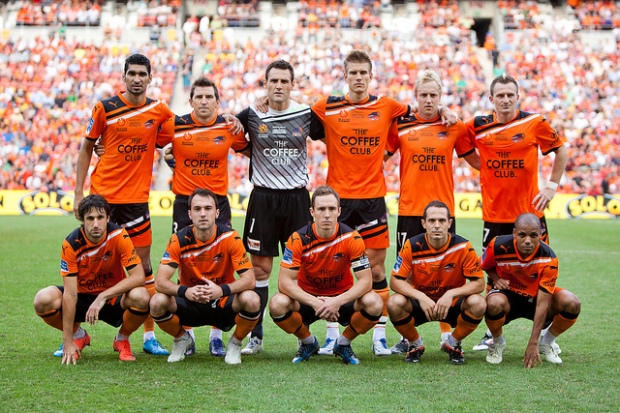
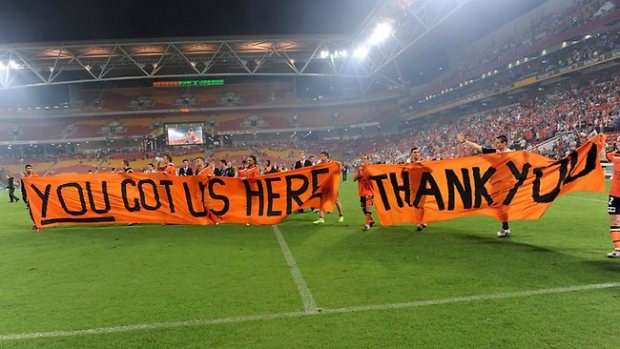
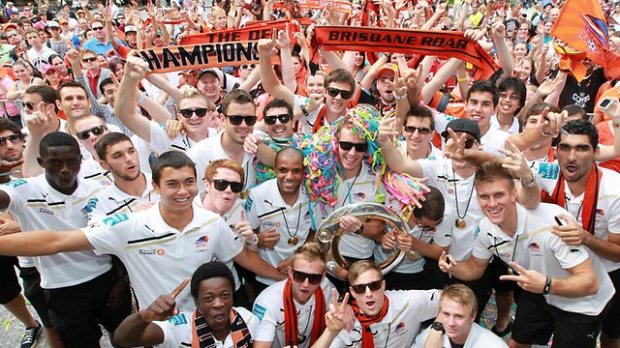
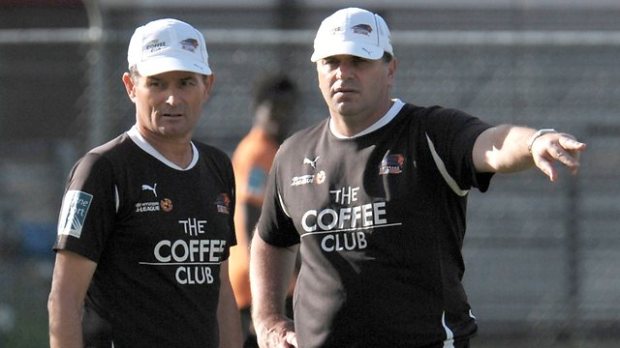
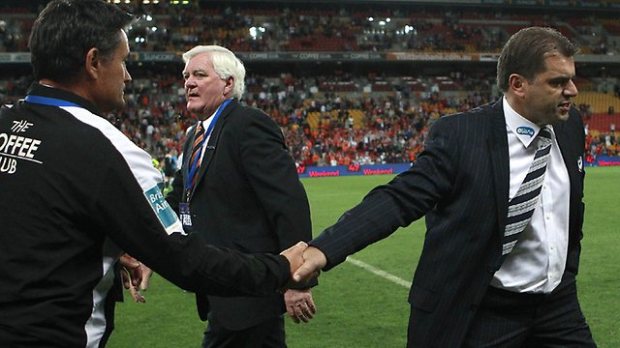
One comment